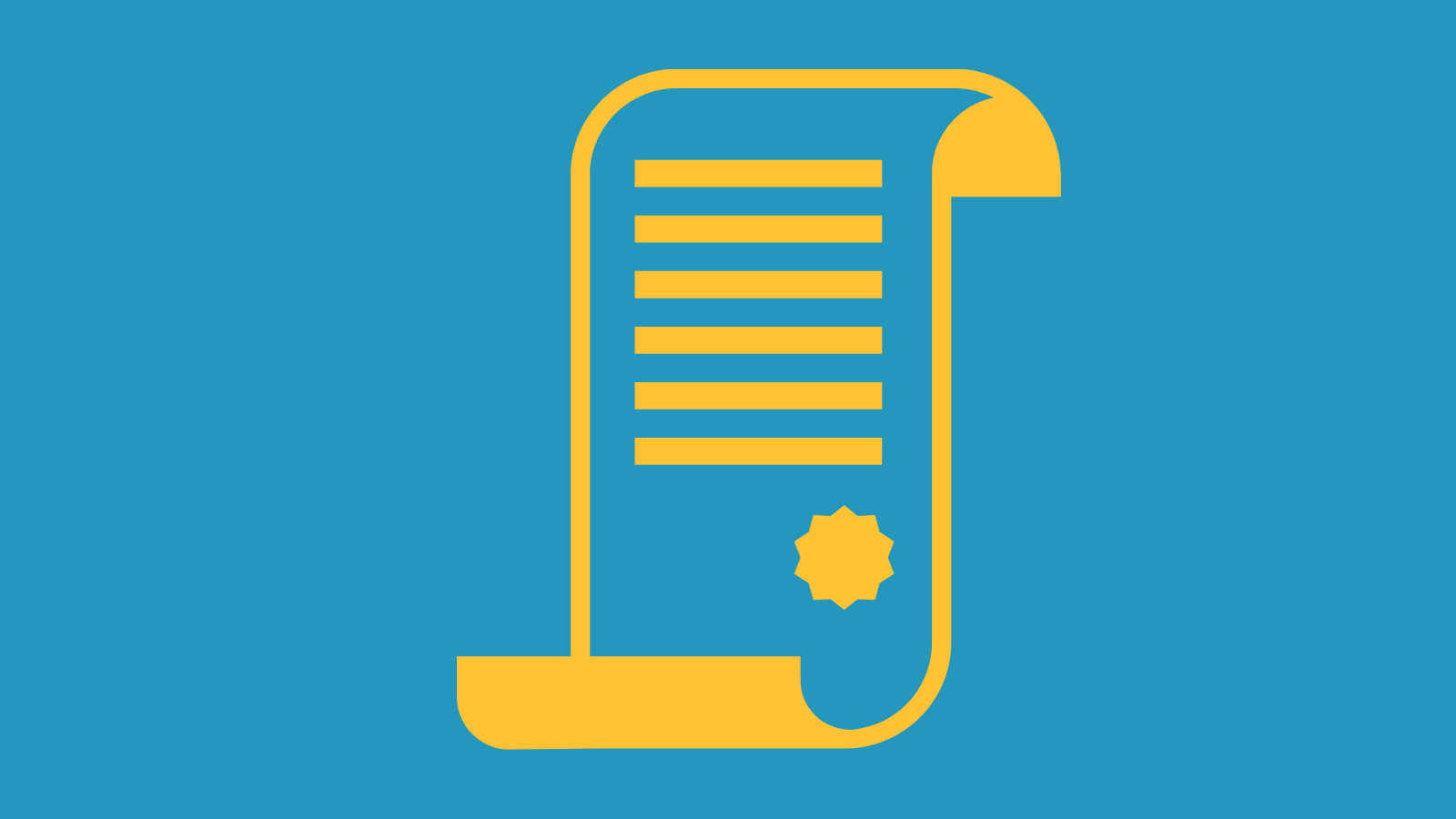What is a Tax Deduction?
A tax deduction, also known as a tax write-off, is a business expense that you can subtract from your taxable income and make your tax bill smaller. The IRS has specific criteria about what counts as a tax deduction. Keep reading and we’ll break down some of the most common ones. For information specific to you and your business, contact a local tax professional.
Types of Small Business Taxes
The taxes a small business pays depends on the business structure. Here are the five small business taxes that all structures have in common.
Income Tax
All businesses except partnerships file annual income tax returns. Partnerships file information returns instead.
Self-Employment Tax
The tax on your net earnings from self employment that go towards social security and medicare obligations.
Employment Taxes
Taxes related to your employees’
- Social security and Medicare taxes
- Federal income tax withholdings
- Federal unemployment tax
Payroll taxes also fall into this category.
Excise Tax
Excise taxes are special, industry-specific taxes. For example, fuel, tobacco, and alcohol taxes. The reasons for needing to pay an excise tax cuts across several categories, including:
- The types of products or services you sell
- The type of business you operate
- The type of equipment you use
Estimated Taxes
Sole proprietorships, partnerships, S-corp shareholders, and other businesses that don’t have taxes withheld from their paychecks are required to make quarterly estimated tax payments.

Things to Remember
Here are a few things small business owners should keep in mind before they file their taxes for the first time as a business.
Tax ID Number
You will need your tax ID number to file your tax return. For corporations and LLCs this is the Employer Identification Number. For sole proprietors and partnerships this is a social security number.
15.3% Self-Employment Tax
In addition to your income taxes, self-employed individuals owe 15.3% in self-employment tax. This is the percentage that employers normally deduct from employees’ paychecks for Medicare and Social Security.
Don’t Forget Cash Payments
You need to report all of your income, including cash payments, on your tax return.
You Can File For an Extension
Filing an extension is an option if you’re not ready to submit by April 15th. The extension filing deadline is March 15th for S-Corps and April 15th for C-Corps. Even if you get an extension, you should pay your estimated taxes to avoid penalty and interest charges.
Employee Bonuses
Employee bonuses are taxed differently from employee wages. They come with a 22% bonus tax and a different tax rate for Social Security and Medicare.
Side Hustle Income
The IRS considers supplemental income from side gigs to be self-employment income and is taxed accordingly.

Recent Changes to Tax Laws
The 2018 tax reform law stemmed a few changes that it’s important for new small business owners to keep in mind. You don’t necessarily need to understand all of the entails, but having a basic understanding while you work with a tax professional can help you get on the same page about your tax process.
State and Local Tax (SALT) Cap
As of 2020, you can only deduct up to $10,000 in state and local income and property taxes.
Deduction for Pass-Throughs and Corporations
The tax reform law also offers a 20% deduction for pass-through and corporation business entities. Pass-through business is a tax term for small businesses structured as sole proprietorships, partnerships, LLCs, and S-corps. These make up 95% of US businesses. However, there are limitations for service-based business owners who make more than $157,500 as a single filer or $315,000 as a married joint filer. The tax rate for C-corps was also lowered from 35% to 21%.
First-Year bonus Depreciation
The law also changed the first-year bonus depreciation deduction to 100%. That means eligible property and equipment purchases can be written off completely instead of writing off a portion of the purchase price each year.

The Most Common Tax Deductions for Small Business
Self-Employment Tax Deduction
If you pay the self-employment tax, you can deduct half of the amount that you pay for it from your net income when you calculate your income tax. This is because the IRS treats the employer’s portion of the self-employment tax as a business expense.
Startup Costs
For most major expenses, the IRS requires businesses to deduct them over time as opposed to all at once. The biggest exception to this is the startup costs deduction. You can deduct up to $5,000 in these costs during the first year of actively running your business. Deductible startup expenses include:
- Market research
- Travel expenses related to starting your business
- Advertising
- Attorney and accountant fees

Workspace
Here are a series of small business tax deductions related to your workspace.
Business Property Rent
If your office space is rented, you can deduct the money you pay from your taxes. If you run your business from home, you can run an eligibility test with the IRS to see if you qualify to deduct your rent. However, you can’t deduct rent expenses on properties that you own.
Utilities
Similarly, you can deduct any utilities that you pay for your business. This includes, but is not limited to:
- Water
- Electricity
- Trash
- Phone and internet

Home Office Expenses
If you operate your business from home, you can also qualify for deductions associated with those expenses. These are the requirements your home office needs to meet to qualify for a deduction:
- Work area must be only used for business activities
- Work area must be your primary place of business
- The majority of the time you spend in the area must be business use
- You have no alternative workspace, such as an office outside the home or a coworking space.
There are two ways to calculate your home office deduction: the simplified method and a regular method.
Simplified Method
Deduct $5 per square foot of your home that you use for business purposes, up to 300 square feet.
Regular Method
Calculate the percentage of your home’s square footage you use for business purposes and apply that percentage to your home expenses.
Whichever method you use, make sure you have proof of the information you provide. The IRS scrutinizes home office expenses very carefully.

Coworking Space
If you rent a coworking space where your membership fees contribute to the cost of rent and utilities, those fees could be a tax deductible expense.
Improvements and Repairs
Repairs to your business property or home office that are necessary for continuing to work there can be deducted from your taxes. You can also write off improvements to your home office, but they must be depreciated. Talk to your accountant before you pay for an improvement or repair to make sure you can deduct it.
![]()
Office Supplies and Furniture
Any office supplies or furniture that you use for business purposes within the year they were purchased can qualify for a tax deduction. Just make sure you file all of your receipts for documentation.
Real Estate Taxes
You can deduct state and local level real estate taxes from your taxes for a total of up to $10,000. Property taxes are included in these deductions.
Mortgage Interest
If you do business from home, you can deduct mortgage interest payments and interest on any loans you take out against your home equity.

Workers
Hiring workers, whether they’re employees or independent contractors, obviously costs money. And with things that cost money come potential deductions.
Employees
Salary and benefits for employees that are eligible for tax cuts include:
- Employee salaries
- Vacation and sick pay
- HSA contributions
- Employee assistance programs
- Life insurance
- Education expenses
- Meals and lodging
Independent Contractor Pay
Whenever you hire freelancers and independent contractors to do work for your company, be sure to collect a 1099 from them and file them correctly before the tax deadline.
Note that the IRS is on the lookout for employers who classify employees as independent contractors to avoid paying employment taxes.

Shipping
Postage, delivery charges, packaging, and anything else that’s necessary to make sure your customers receive the products they ordered from your company are all deductible business expenses.
Banking, Retirement Plans, and Insurance
Here are some common deductions related to business banking, retirement, and insurance.
Business Insurance
Regardless of your business structure, business insurance is tax deductible. You can get tax breaks on these types of business insurance:
- Data breach insurance
- Commercial property insurance
- Professional liability insurance
- General liability insurance
- Workers’ compensation insurance
Health Insurance
Self employed people are often eligible for a health insurance premium deduction. You can deduct 100% of health insurance costs for the following people:
- Yourself
- Your spouse
- Your dependents
- Your children under the age of 27 at the end of the tax year
Business Interest and Bank Fees
Fees your bank charges for using your business checking account and any interest you pay on a business credit card or small business credit card are all tax deductible.
Retirement Contributions
Self-employed people can deduct retirement plan contributions. Self-employed retirement plan options include:
- Simplified Employee Pension (SEP) IRA
- Savings Incentive Match Plan for Employees (SIMPLE)
- Qualified Plan

Professional Services
You can get tax deductions for a variety of professional services related to operating your business.
Bookkeeper, Accountant, and Tax Professional Fees
Hot tip: you can meet with a tax preparation professional to learn more about which expenses you can deduct, then deduct the expense of that meeting. The professional services deduction applies to a variety of professionals who assist with small business finances.
Legal Fees
If you newly hire or retain an attorney for purposes like
- Preparing contracts
- Filing trademarks and copyrights
- Negotiating leases
- Defending your business in court
The fees for their services can be a tax write-off.

Bad Debts
The IRS defines bad debts as money owed to you by a client or customer that you cannot collect. If you have an uncollectible debt, you can write it off within a year. Examples of bad debts include:
- Loans to suppliers and clients
- Business loan guarantees
- Credit sales to customers
Marketing
The costs of marketing, advertising, and promoting your business are tax deductible as long as they’re “ordinary and necessary” by the standards of the IRS.
Advertising
The fees for placing ads anywhere from Instagram to a billboard and any costs associated with creating it are tax deductions. This includes the pay for any employees or contractors who create the ad.
Marketing Tools and Services
Any tools, services, and software subscriptions that you use for marketing purposes can also be deducted from your taxes.
.png?width=1600&name=A%20pattern%20of%20megaphone%20graphics%20(3).png)
Website Fees
Building and running a website is absolutely an ordinary and necessary expense in the current business landscape. As such, you can deduct the following related expenses from your taxes:
- Website builder membership
- Domain and web hostings
- Third party integrations
Education
Expanding your knowledge to improve your business is always a worthwhile investment. It only makes sense to deduct it from your taxes. If you or your employees take a class, attend a seminar, or subscribe to a trade publication that improves your skills in a way that’s relevant to your business, you can deduct the costs.
It doesn’t even have to be directly related to your primary products or services. For example, taking a photography class so you can take better product photos would count because it improves your day to day operations.

Travel
Whether it’s a business trip out of state or driving around town day to day, you can deduct your travel expenses from your taxes.
Business Travel Expenses
For a business-related trip to qualify for a deduction, it must:
- Be necessary to your business
- Take you away from your tax home longer than one work day
- Require an overnight stay
Eligible expenses for deduction include:
- Airfare
- Tolls
- Taxis
- Lodging
Work-Related Car Expenses
There are two options for calculating a mileage deduction: the standard mileage rate and the actual expense method.
With the standard mileage rate, you can deduct money per mile you drive. Consult this IRS page every year for the most current rate.
The actual expense method includes all of the vehicle fuel and maintenance costs you’ve paid over the year.
![]()
Inventory
If your business manufactures products or purchases them for resale, you can deduct the cost of goods sold from your taxes. The following expenses go into your cost of goods sold:
- Materials
- Storage
- Labor
- Factory overhead
Equipment Rent and Depreciation
If your business involves renting equipment or machinery, you can deduct these costs in full. This applies to everything from copy machines to trucks. You can also claim depreciation on your equipment and deduct the costs over several years.

Business Meals and Entertainment
If meals and entertainment are necessary for your business, you can deduct them from your taxes. Most meal costs are deductible up to 50% but others, such as food provided at an office party, are 100% deductible. Either way, save the receipts and make note of the business purpose of the event.
Charitable Contributions
Charitable donations are tax deductible for businesses and individuals. Just be sure to keep those receipts. This does not apply to donations to political campaigns.
![]()
Small Business Tax Tips
Here are a few tips for people who are new to paying taxes as a business owner.
Always Keep Your Receipts
You’ll notice a theme in many of these types of deductions: keep the receipts to prove that you made the purchase and that it was for business purposes. As you make your purchases, file every receipt into an organized system so you can easily find them when it’s tax preparation time.
Think About Taxes All Year Long
Tax planning shouldn’t be a once a year event. Thinking about your taxes all year round makes tax time less complicated and helps you save money more effectively.
Pay Attention to Changes in Tax Law
Even if you have a professional preparing your taxes, it’s a good idea to stay informed about changes in tax laws so you don’t get any surprises.
Don’t Assume
You should never make business decisions under the assumption that you’ll get a particular tax break.
Consult With a Professional
If you have any doubts about whether or not something counts as a tax deduction or if you’re applying the right amount of tax for a deduction, ask a CPA or other tax professional. It’s always better to ask for a professional opinion than to make the wrong decision and get audited.

The Best and Worst States for Business Taxes
The 10 best states according to the 2022 Tax Foundation Index are:
- Wyoming
- South Dakota
- Alaska
- Florida
- Montana
- New Hampshire
- Nevada
- Tennessee
- Indiana
- Utah
The index’s 10 worst states are:
- Hawaii
- Louisiana
- Vermont
- Arkansas
- Minnesota
- Maryland
- Connecticut
- California
- New York
- New Jersey

Learn More About Small Business Taxes
- The Small Business Administration (SBA)’s guide to small business owners’ tax responsibilities
- How the Affordable Care Act affects small business owners’ taxes
- The SBA’s guide to choosing the right business structure
- The IRS’ guide to the Small Business Health Care Tax Credit
- The IRS’ self-employed and small business taxes information center
Small Business Tax Deductions FAQ
What can you write off as business expenses?
All basic expenses that are necessary to run a business are tax deductible, including but not limited to:
- Employee salaries
- Equipment and supplies
- Rent and utilities
- Legal and accounting fees
How can a small business maximize tax deductions?
- Take as many tax deductions for small businesses as you can
- Track and organize your business expenses year-round
- Don’t wait until tax season to think about your taxes
What are home business tax deductions?
If your home-based business meets the IRS guidelines, you can deduct the following expenses:
- Homeowners insurance
- Homeowners association fees
- Mortgage insurance and interest
- Real estate taxes
- Utilities
- Cleaning fees used in your office space

Can renters qualify for a home office expense deduction?
Yes, renters and homeowners alike can deduct their home office expenses if they meet the requirements.
What are non-deductible business expenses?
Not all business expenses are tax deductible. Non-deductible expenses vary state by state, but most states include:
- Taxes
- Fines and penalties
- Capital expenses and equipment
- Commuting costs
- Personal expenses
- Political contributions
- Illegal expenses (bribes, kickbacks, salaries paid to workers who can't work legally)
- Gifts over $25
- Business attire
- Club memberships
- Travel expenses for friends and family
How Sav Can Help
We may not be able to pay your taxes for you, but here are Sav we’re here to make it easy for your business to succeed online. Our website builder payment options make it easy for money to come in. The automatic tax calculations feature takes the guesswork out of sales taxes. You can even configure tax invoices right on-site. Start your free trial today to learn more and start earning tomorrow!




